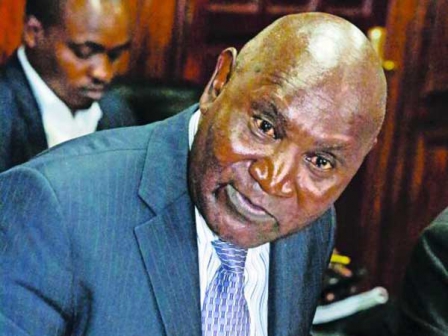×
The Standard e-Paper
Stay Informed, Even Offline

An audit at the Ministry of Defence has questioned validity of Sh12.5 billion in pending bills accumulated over three years, after the ministry failed to provide details of the alleged payees.
Auditor General Edward Ouko further reveals that in excess of Sh145.3 million of taxpayers money could have been misappropriated in a suspicious deal that saw overpricing of two excavators bought at Sh185.5 million yet a market survey undertaken by the user indicated that the same could have cost as less as Sh40 million.